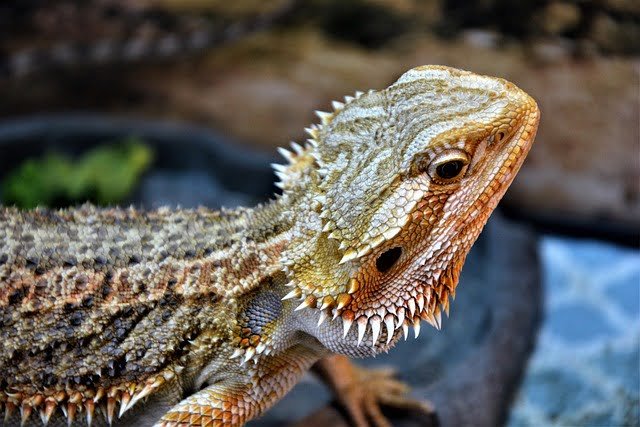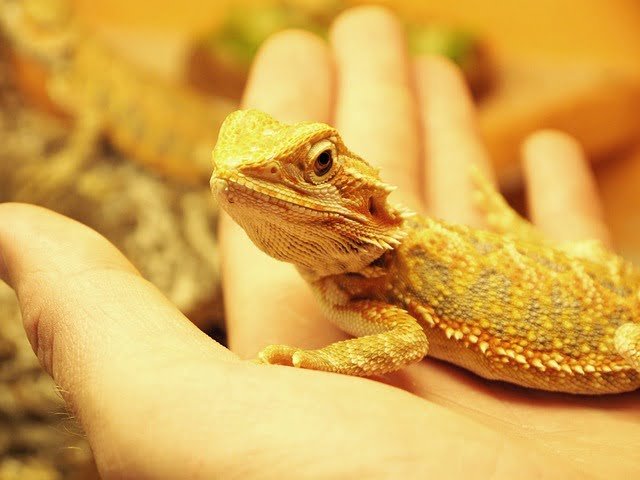Bearded dragons are beloved pets for many people, and owners always want to provide the best care for their reptile friends. One of the essential aspects of caring for a bearded dragon is ensuring they have a healthy and nutritious diet. While some plants can be beneficial to herbivorous reptiles, others can be harmful, such as aloe plants. In this article, we will explore whether bearded dragons can eat aloe plants and provide a comprehensive guide on their dietary requirements.

All About Bearded Dragons
Before delving into whether bearded dragons can eat aloe plants, it is essential to understand their dietary needs. Bearded dragons are omnivorous, meaning they consume both insects and vegetables. Young bearded dragons require a diet that consists of 80% insects and 20% vegetables, while adult bearded dragons require a diet that consists of more vegetables than insects.
When feeding vegetables to bearded dragons, it is crucial to chop them up into small pieces and provide a variety of options to create a balanced diet. Some safe vegetables for bearded dragons include bell peppers, cabbage, carrots, celery, kale, and asparagus. However, some vegetables, like spinach, broccoli, and romaine lettuce, should be avoided as they can be harmful in large amounts.
Can Bearded Dragons Eat Aloe Plant?
Aloe vera plants belong to the succulent family and are not recommended for bearded dragons as they can cause stomach upset. While aloe plants are not necessarily toxic to bearded dragons, they contain a gel-like liquid that can cause diarrhea and other gastrointestinal issues if ingested in large quantities.
Aloe plants are also not a good dietary option for bearded dragons as they are low in protein, calcium, and other essential nutrients that these reptiles require. Bearded dragons have unique digestive compositions that require specific nutrients to maintain optimal health, and aloe plants do not provide these necessary nutrients.
Safe Plants for Bearded Dragons
If you are looking to decorate your bearded dragon’s terrarium, there are many safe plant options that can also be beneficial for their health. Mint, fennel, lemongrass, lavender, and oregano are just a few examples of herbs that you can safely use to decorate your aquarium.
Additionally, providing live plants in the terrarium can provide environmental enrichment for bearded dragons, as they can climb and explore the plants. However, it is essential to research which plants are safe for bearded dragons, as some plants can be toxic to them. Some plants to avoid include azaleas, chinaberries, rosary peas, and primrose.

Other Essential Terrarium Accessories
In addition to safe plants, there are other essential accessories that every bearded dragon terrarium should have. Basking logs, burrows or caves, small hammocks, and bones are all great additions to a bearded dragon’s living space.
Basking logs provide a relaxing temperature for bearded dragons to bask in, while burrows or caves provide a hiding place for when they want to be alone. Hammocks are a great way to provide additional climbing opportunities for bearded dragons, and bones can provide a comfortable and natural feel to their living space.
Frequently Asked Questions
What foods should bearded dragons avoid?
Bearded dragons should avoid harmful foods, such as spinach, broccoli, and romaine lettuce, as they can be harmful in large amounts. However, they can eat fruits such as apples, strawberries, watermelon, and peaches, and a variety of insects such as earthworms, cockroaches, silkworms, crickets, and roaches.
Can bearded dragons eat aloe vera plants?
While aloe vera plants are not toxic to bearded dragons, they are not recommended as they can cause stomach upset and are low in essential nutrients.
What plants are safe for bearded dragons?
Safe plants for bearded dragons include mint, fennel, lemongrass, lavender, and oregano. However, it is important to research which plants are safe, as some plants can be toxic to bearded dragons.

Conclusion
In conclusion, while aloe plants are not toxic to bearded dragons, they are not recommended for consumption due to their low nutritional value and potential to cause stomach upset. It is essential to provide a balanced and varied diet for bearded dragons, including safe vegetables and insects. Additionally, providing safe plants and essential terrarium accessories can provide environmental enrichment and improve the overall health and well-being of your bearded dragon.





